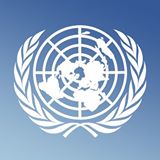Report for the UN Regional Interagency Team on AIDS May 2016
Read the full report here
Executive summary
Countries in Asia and the Pacific have made significant progress in removing legal and policy barriers to universal access to HIV services since 2012.
Concerted actions resulting from reviews and consultations have resulted in improvements to policies, laws and law enforcement practices. Solid progress has occurred through laws and policies supporting expanded availability of HIV treatment and prevention options, including antiretroviral therapy (ART), condoms, needles and syringes, and opioid substitution therapy (OST).
Actions have also had broader impact in other areas crucial for inclusive and human rights-based development, particularly in reducing social inequalities, promoting gender equality, fulfilling rights in employment and education, and improving access to justice, thereby advancing progress towards the Sustainable Development Goals (SDGs) and promoting human rights.
In many countries, reviews and consultations have led to increased availability of data on legal and policy barriers to HIV responses, and mobilization and engagement of stakeholders to address barriers through partnerships and collaboration.
However, much work remains to be done. Progress has been slow and inconsistent in the reform of criminal laws that deter key populations from accessing services (i.e. removal of penal code provisions relating to sex work, drug use, and same-sex sexual conduct). Significant work has occurred in raising awareness of the importance of expanding access to justice, however the vast majority of people living with HIV and key populations are still unable to access legal aid services. Key populations and women affected by HIV remain highly stigmatized, continue to face discrimination and high levels of violence that often goes unreported, and have limited access to justice.
In some country contexts, the legal and policy environment for key populations has deteriorated significantly since 2012, presenting new barriers to accessing HIV services. It is critically important that countries maintain participatory national processes that focus on removing legal and policy obstacles to universal access to HIV services to ensure progress towards the Fast-Track targets including Zero Discrimination and the target set by SDG 3 (healthy lives and well-being) of ending AIDS by 2030.
National and regional accountability mechanisms should proactively monitor progress of each country in developing and implementing action plans for removing legal and policy barriers. People living with HIV and key populations should play a central role in these accountability mechanisms.
Countries preparing for the 2016 UN High-Level Meeting (HLM) on Ending AIDS are urged to be guided by the Secretary-General’s HLM Report On the Fast-Track to End the AIDS Epidemic in using the SDGs and Member States’ pledge to ‘leave no-one behind’ as entry points for advocacy and follow-up activities flowing from legal and policy reviews and consultations.
Countries should grasp the opportunity of the HLM to strengthen intergovernmental commitments to address the specific issues and recommendations that were raised through the national consultations, reviews and followup actions to remove legal and policy barriers. Political leadership and engagement of people living with HIV, key populations, religious leaders and other civil society champions are crucial to preserve the policy gains that have been made, address complacency and resolve law reform bottlenecks.



